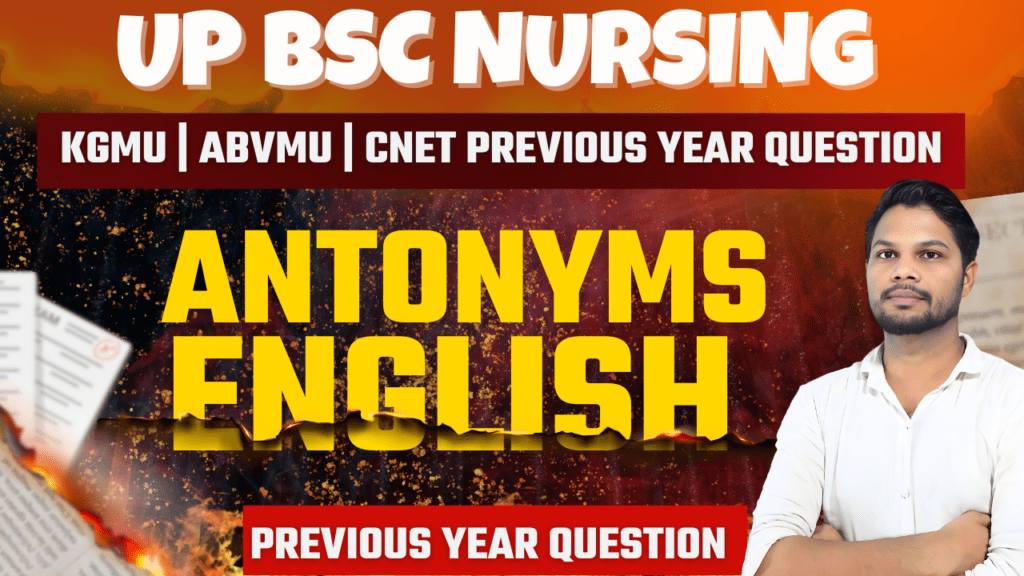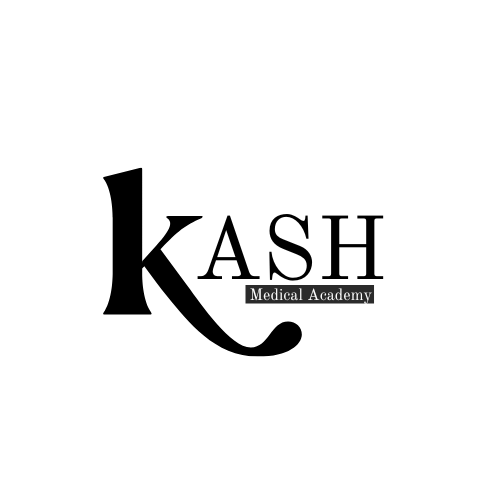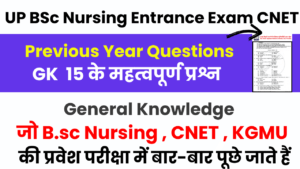
Anotonyms General English Bsc Nursing Important Previous Year Questions CNET , Up Bsc Nursing , MPPNST ,
1. The doctor prescribed a **potent** medication for the infection.
(a) weak
(b) strong **[ANS]**
(c) effective
(d) bitter
2. The nurse maintained a **sterile** environment in the operating room.
(a) clean **[ANS]**
(b) efficient
(c) safe
(d) controlled
3. The patient’s **elevated** temperature indicated a possible infection.
(a) normal **[ANS]**
(b) constant
(c) high
(d) critical
4. The nurse provided **compassionate** care to her patients.
(a) harsh
(b) skilled
(c) distant **[ANS]**
(d) attentive
5. The doctor performed a **microscopic** examination of the tissue sample.
(a) cellular **[ANS]**
(b) detailed
(c) magnified
(d) visual
6. The patient experienced **acute** pain after the surgery.
(a) chronic **[ANS]**
(b) severe
(c) sharp
(d) unbearable
7. The nurse administered a **sedative** medication to calm the anxious patient.
(a) stimulating **[ANS]**
(b) calming
(c) relaxing
(d) effective
8. The doctor diagnosed the patient with a **contagious** disease.
(a) widespread **[ANS]**
(b) serious
(c) harmful
(d) infectious
9. The nurse monitored the patient’s **vital** signs regularly.
(a) important **[ANS]**
(b) critical
(c) essential
(d) unchanging
10. The doctor explained the procedure in a **concise** manner.
(a) clear **[ANS]**
(b) detailed
(c) informative
(d) helpful
11. The patient’s **dehydrated** state required intravenous fluids.
(a) hydrated **[ANS]**
(b) nourished
(c) weak
(d) imbalanced
12. The nurse followed a **strict** protocol for administering medication.
(a) loose **[ANS]**
(b) careful
(c) precise
(d) detailed
13. The doctor performed a **non-invasive** procedure to diagnose the illness.
(a) minor **[ANS]**
(b) internal
(c) surgical
(d) risky
14. The nurse offered **reassurance** to the nervous patient before surgery.
(a) confusion **[ANS]**
(b) comfort
(c) support
(d) explanation
15. The injured limb showed signs of **inflammation**.
(a) infection **[ANS]**
(b) swelling
(c) redness
(d) pain
16. The doctor prescribed a **broad-spectrum** antibiotic for the infection.
(a) targeted **[ANS]**
(b) powerful
(c) effective
(d) fast-acting
17. The patient required **intensive** care after the critical surgery.
(a) basic **[ANS]**
(b) specialized
(c) continuous
(d) essential
18. The nurse encouraged the patient to maintain **independence** after surgery.
(a) reliance **[ANS]**
(b) weakness
(c) isolation
(d) inactivity
19. The doctor diagnosed the patient with a **chronic** illness.
(a) acute **[ANS]**
(b) serious
(c) life-threatening
(d) contagious
20. The nurse monitored the patient’s **stable** vital signs.
(a) fluctuating **[ANS]**
(b) critical
(c) concerning
(d) abnormal
21.The doctor prescribed an inert medication for the infection.
(a) weak [ANS]
(b) strong
(c) effective
(d) bitter
22.The nurse maintained an unclean environment in the operating room.
(a) dirty [ANS]
(b) efficient
(c) safe
(d) controlled
23.The patient’s depressed temperature indicated a possible infection.
(a) normal [ANS]
(b) constant
(c) high
(d) critical
24.The nurse provided uncompassionate care to her patients.
(a) harsh [ANS]
(b) skilled
(c) distant
(d) attentive
25.The doctor performed a macroscopic examination of the tissue sample.
(a) cellular [ANS]
(b) detailed
(c) magnified
(d) visual
26.The patient experienced chronic pain after the surgery.
(a) acute [ANS]
(b) severe
(c) sharp
(d) unbearable
27.The nurse administered a stimulating medication to calm the anxious patient.
(a) sedative [ANS]
(b) calming
(c) relaxing
(d) effective
28.The doctor diagnosed the patient with a non-contagious disease.
(a) widespread [ANS]
(b) serious
(c) harmful
(d) infectious
29.The nurse monitored the patient’s unimportant signs regularly.
(a) vital [ANS]
(b) critical
(c) essential
(d) unchanging
30. The doctor explained the procedure in a verbose manner.
(a) clear [ANS]
(b) detailed
(c) informative
(d) helpful




